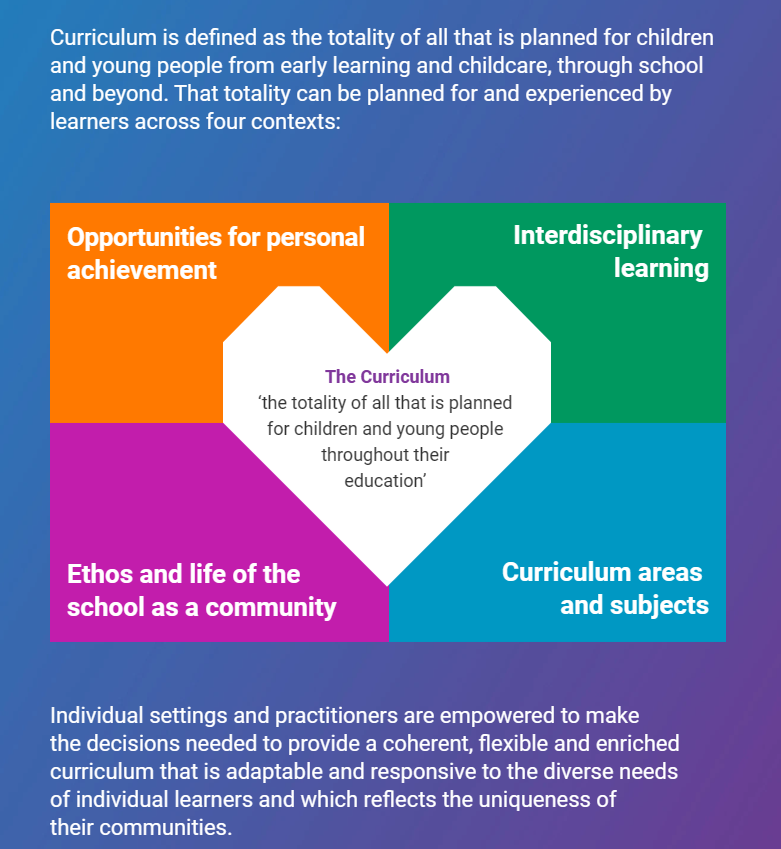Scotland’s Curriculum for Excellence

Here at Richard Stewart FLC we will be guided by Realising the Ambition: Being Me, which builds on the original guidance Building the Ambition and Pre-Birth to Three, that our babies and children deserve the very best experiences throughout their learning journey; before birth and beyond. The guidance covers the period from birth through early childhood into primary education.
Pre-birth to Three (Learning and Teaching Scotland, 2010) reflected on four key principles of the Rights of the child, Relationships, Responsive care and Respect. All four principles are as relevant and current today.
We will be guided by the guidance to:
- make links between practice, theory, and policy guidance to reinforce aspects of high-quality provision and the critical role practitioner’s play
- build confidence and capability of those who work with children and families from pre-birth to starting school and beyond
- support improvement and quality by encouraging discussion, self-reflection and questioning about relevant practice
- provide advice on achieving the highest quality of ELC provision that will enable young children to experience and to play their own part in Scotland being the best place in the world to grow up
For older children, we will also be guided by Curriculum for Excellence: Early level which builds on the solid foundations developed in the critical years pre-birth to three.
Curriculum Rationale
NLC Curriculum Vision
“We aspire to support all children and young people to realise their full potential by giving them the tools to make their way in life through quality, exciting, and challenging learning opportunities resulting in improving attainment and closing the poverty-related attainment gap.”
At Richard Stewart FLC our aim is to nurture each child’s capacity to become a:
- Successful learner
- Confident individual
- Responsible citizen
- Effective contributor
Our curriculum will provide experiences and opportunities to foster these capacities. The seven principles of curriculum design will be used to build around curricular areas including, literacy, numeracy, Health and Wellbeing, and digital skills to develop the four capacities. Children’s progress in learning and development will be tracked using a variety of methods and in collaboration with parents.
Children’s voices in their learning journey will be evident in the use of overarching principles of the CFE to include Play and the SHANARRI Wellbeing Wheel Framework for Getting it Right for Every Child (GIRFEC).
The Scottish Government has placed a particular emphasis on raising attainment and acquiring skills for work and employability in later life and, as such, we will look to these as we consider progression and relevance within our planning. (Developing the Young Workforce – Scotland’s Youth Employment Strategy, December 2014).

